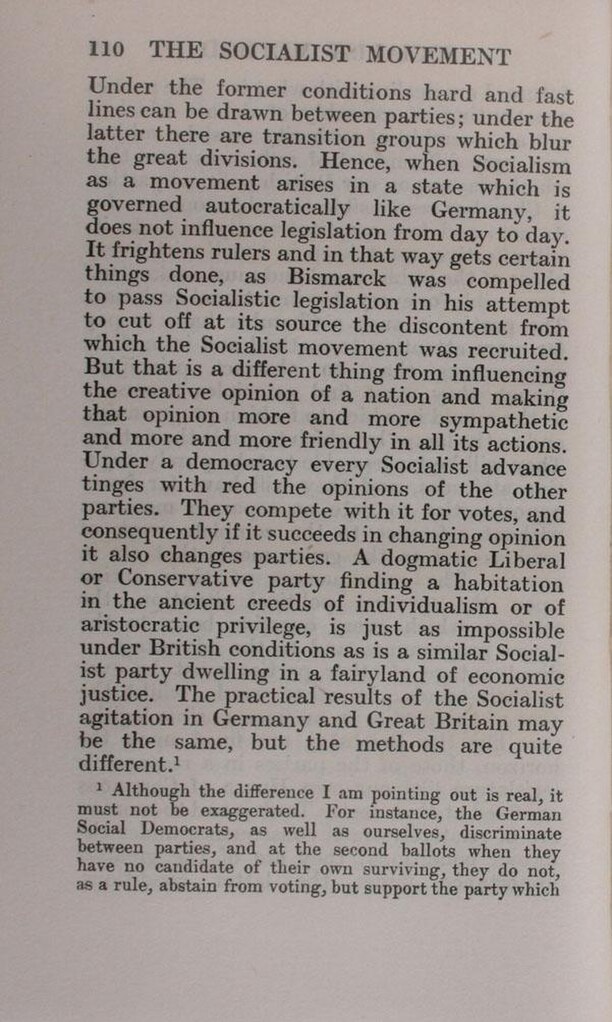Under the former conditions hard and fast lines can be drawn between parties; under the latter there are transition groups which blur the great divisions. Hence, when Socialism as a movement arises in a state which is governed autocratically like Germany, it does not influence legislation from day to day. It frightens rulers and in that way gets certain things done, as Bismarck was compelled to pass Socialistic legislation in his attempt to cut off at its source the discontent from which the Socialist movement was recruited. But that is a different thing from influencing the creative opinion of a nation and making that opinion more and more sympathetic and more and more friendly in all its actions. Under a democracy every Socialist advance tinges with red the opinions of the other parties. They compete with it for votes, and consequently if it succeeds in changing opinion it also changes parties. A dogmatic Liberal or Conservative party finding a habitation in the ancient creeds of individualism or of aristocratic privilege, is just as impossible under British conditions as is a similar Socialist party dwelling in a fairyland of economic justice. The practical results of the Socialist agitation in Germany and Great Britain may be the same, but the methods are quite different.[1]
- ↑ Although the difference I am pointing out is real, it Must not be exaggerated. For instance, the German Social Democrats, as well as ourselves, discriminate between parties, and at the second ballots when they have no candidate of their own surviving, they do not, as a rule, abstain from voting, but support the party which
